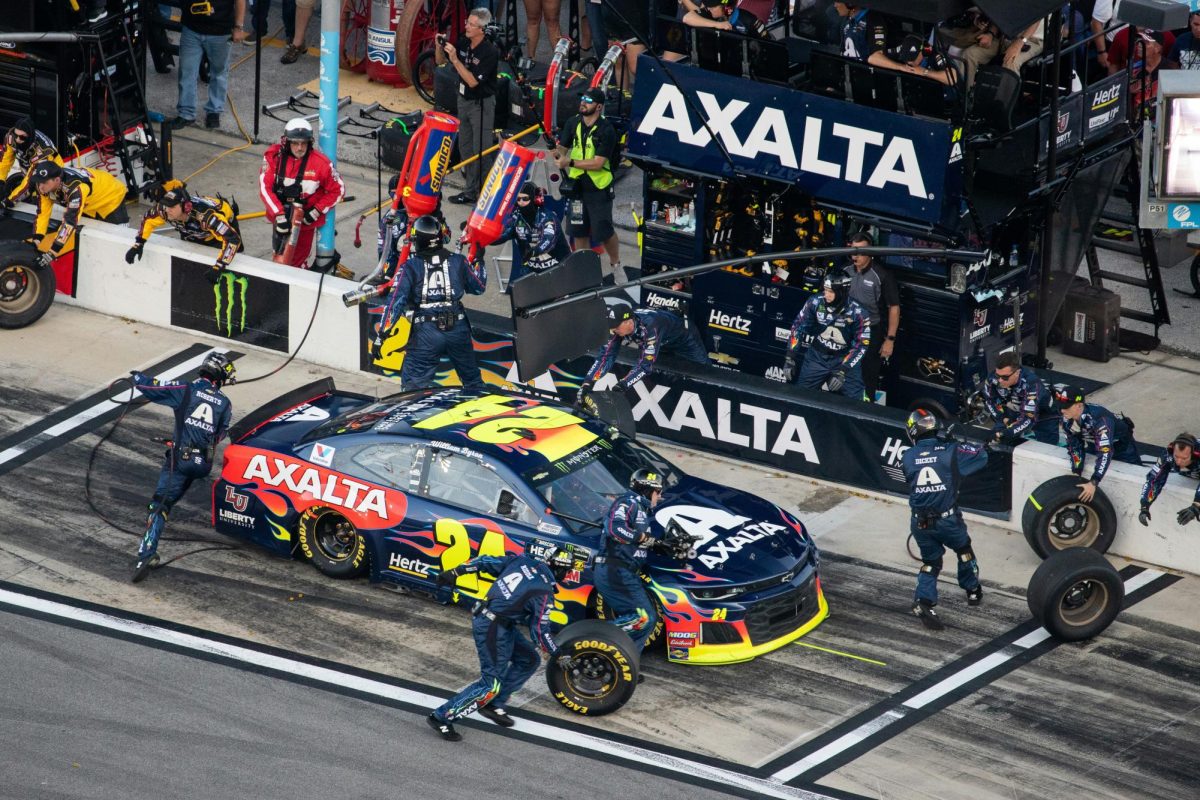With a recent upset from the 2024 NASCAR Cup Champion, Joey Logano, many motorsports fans have started to doubt the legitimacy of NASCAR’s playoff format. Does the format crown a deserving champion, or is it built on the back of entertainment?
Logano was crowned through the win-and-in playoff system, which many long-time fans dislike because it resembles the NFL playoff format. From 1948 to 2003, the sport used a points-based system, which was constantly changed, with points weighted differently throughout the seasons to raise ratings.
NASCAR has a history of aligning itself with controversy over its legitimacy. As far back as the 1970s, NASCAR officials favored drivers and teams to keep its popularity up. When a driver performed ahead of the field, the car was inspected thoroughly to ensure parity and fairness. On some occasions, the officials scrutinize a vehicle less than a different car based on favoritism. The most famous instance of this happening was when officials looked the other way after Richard Petty’s 199th win when he had a larger engine than the rest of the field.
This scrutiny generated controversy at the time, but even then, a sport born in the controversy of fairness and parity would still use that to garner attention. In preparation for the 1959 Daytona 500, NASCAR’s founder, Bill France, used the finish to develop publicity for the newly inaugurated Daytona International Speedway.
Fans who disapproved of Logano’s championship tried to prove their point by bringing up the disqualification of Alex Bowman during the Bank of America Roval 400 to disprove his championship since it gave Logano the final spot in the ‘Round of 8.’ As a result, controversy was rampant, with some calling it a “Mickey Mouse Championship.” A saying that became famous to drivers who won their championships “undeservedly.” This left the question of if NASCAR was a legitimate sport.
Even before the playoff format was introduced, ratings and viewership took priority over a fair game. For example, the 1979 Daytona 500, considered the most important stock car race of all time because it was the first 500-mile race televised “flag-to-flag,” was controversial due to the finish. Drivers Cale Yarborough, Donnie Allison and Bobby Allison fought in front of millions of viewers while Petty took the checkered flag at the same time. The race’s controversial finish, combined with the viewership at the time that was aided by a massive blizzard across the U.S., put the sport into the national spotlight, ditching the moonshine running roots at the same time, where drivers originally smuggled whiskey or moonshine across the Southern U.S. Now, the sport itself relies on controversies to keep itself running. The more there are, the more likely people are to talk about it.
William Hearst, a newspaper publicist and politician, was accused of saying, “You furnish the pictures, and I’ll furnish the war.” NASCAR can be seen saying something similar: “We’ll furnish the controversy, and you’ll fight about it.” After all, a sport with controversial moonshining roots might as well keep itself running by stirring controversy and no longer providing a fair game for all.





























